I, Tonya: Press conference with Margot Robbie, Allison Janney, Craig Gillespie and Steven Rogers
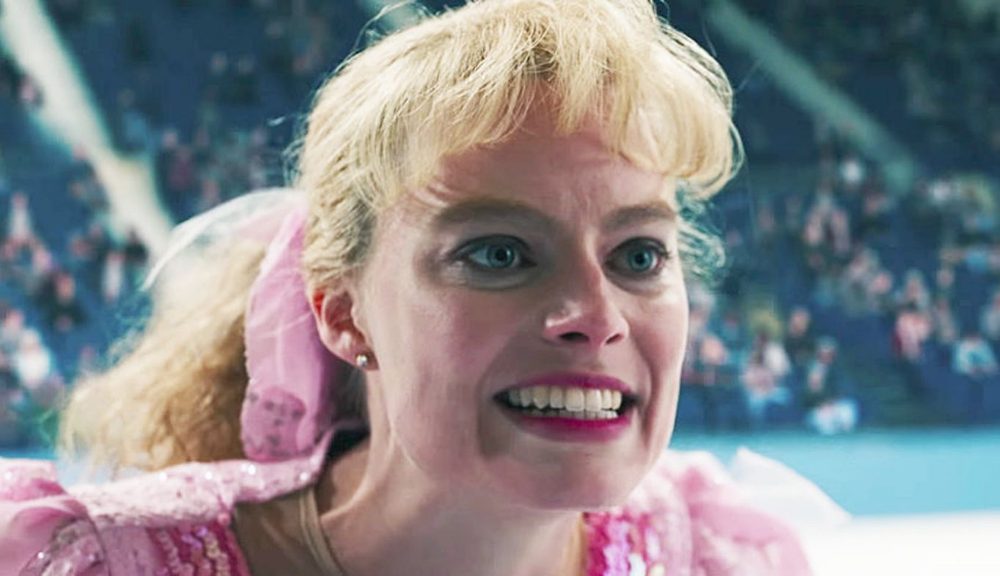
Seemingly out of nowhere, Steven Rogers and Craig Gillespie pull out the most rockin’ indie movie of the last few years. With their previous and somewhat unsatisfying credits (Mr Woodcock, Hope Floats), an electric biopic about ex-figure skater Tonya Harding would’ve been a strange prediction to make. But these days, we’re used to stranger.
Margot Robbie plays Tonya, whose efforts to be a figure-skating champion are constantly obstructed by her aggressive attitude and the high-and-mighty opinions of classist judges, who don’t like her white-trash background. She doesn’t fit the idealised picture of a “wholesome American family”. On top of this, she is also a victim of domestic abuse from her husband Jeff Gillooly (played by Sebastian Stan) and her mother LaVona (explosively portrayed by Allison Janney).
Robbie, Janney, Gillespie, and Rogers gathered for a press conference at the Soho Hotel in London, ahead of the film’s release on 23rd February. The event was hosted by Empire’s Terri White.
How much did you know about this story? There are particular challenges in terms of there being multiple versions of the truth. How do you begin that process of filtering those truths?
Steven Rogers: I didn’t follow it that much at all. I just happened to watch this documentary on 30 for 30 about Tonya Harding. There was stuff in it about truth and the perception of truth, and how we justify our actions and tell ourselves what we need to tell ourselves in order to be able to live with ourselves. That interested me, and I felt like it was framed in a whole lot of crazy. I thought that was an interesting story to tell. I went onto the Tonya Harding website to find out if her life rights were available, and I called the number for her agent and he was in Motel 6 [an American budget motel]. I just thought: “OK, I’m so in. I don’t even know if this is a movie, but it will definitely be a good story.” I tracked down Tonya Harding and I tracked down Jeff Gillooly, and I got them to agree to let me interview them. When I did, they remembered everything completely differently. That’s what gave me the idea to put everybody’s version of the truth up there and let the audience decide what was what.
Craig Gillespie: I never read a script like this. It was so original in its structure and in [its] extremes of comedy and drama and the empathy and the violence. I loved that challenge. I was lucky enough that Margot and Allison were already attached, which made my life very easy. Margot is a producer on this, and she interviewed me. I had to pitch myself to get this film. They’re such great actors and they can dance between the humour and the drama, which is so pivotal in this script. I could see it so easily with these guys, and with Steven’s writing.
You were just talking about the aspects of comedy in the film. I just wondered why you wanted to have it as a black comedy, and how did you do it so it wasn’t a caricature of real-life people?
Margot Robbie: It’s actually very liberating having the real-life people be so well-documented. We tend to draw it in and not want to exaggerate when we’re portraying something on screen. Actually, real life happens to be a lot more insane than what we do in the films most of the time. I think if we had told Allison to put on a fur coat and have a bowl haircut and have a bird on her shoulder, maybe [she’d think] we were pushing it or something. But when you look at the actual footage of LaVona wearing exactly that and saying those exact things, it is kinda liberating – as the actor – to know that you can go real big and it’s still the truth of the situation.
Allison Janney: The stakes are very high, I find, when things tend to be funny – whether it’s a drama or a comedy. For LaVona, she wanted her daughter to be successful in the figure-skating world. She wanted it really badly, so when Jeff Gillooly got in the way or the figure-skating community didn’t embrace her daughter, she was enraged. I had to ground her in reality to flesh her out so she wasn’t just a monster – she was a woman who’d probably been disappointed at every turn in her life, probably a woman who was abused. I didn’t get to speak to the real woman, but I approached her as any other role. You have to make it make sense to you and make her choices make sense to you – Why would she behave like this? why would she do this? why would she do that? The humour comes out of the juxtaposition of the different viewpoints, smashed up next to each other. It’s just shocking to see LaVona throw a knife at Tonya, and then you cut to [LaVona] saying “What family doesn’t have their ups and downs?” and just minimalising this unbelievable, terrifying abuse.
SR: I actually thought this story was really funny, and I thought it was really tragic, and I thought it was really crazy. And I didn’t see why I had to just choose one. I felt like that’s life: life is never just one thing, it’s everything at a time and it’s really messy. I wanted the screenplay to reflect that.
CG: There’s inherent humour in the circumstances in these events that we’re all so familiar with, and they’re so outrageous. I love that we have that already going into it, and the audience has that. But to be able to re-examine that and surprise the audience and show that you actually care for these characters because they’re real people with real stakes, in this absurdity of events that’s going on – that was the challenge that was exciting. You’ll come into this with a judgement and pre-conceived notions about Tonya and the incident and by the end of it, hopefully, you’ll have some empathy.
For Allison and Margot: both your characters have very distinct looks. How much does the character’s look help your performance, and which character’s look (over your careers) has helped you the most?
AJ: My look was incredibly liberating. I went through three hours of make-up for the direct address scenes of LaVona’s – the incredible wig, the costumes by Jennifer Johnson, having that fur coat, and auditioning three birds. When I saw the final look, I felt like I’d stepped out of a Diane Arbus photograph. It was just extraordinary. I felt so empowered by that look, I didn’t feel as horrified as I thought I would be. I think I look better there than I do right now! I loved it. I felt like I didn’t care what anybody thought – I earned the right to sit here and I’m gonna tell you my story and you’re gonna listen to me.
MR: It helped so much with every character. I just need to not look or sound like myself in order to not feel like myself, and be able to act like someone else. Hair, make-up, and costumes for me is a huge step in finding the character. And the dialect – because I’m Australian, I always act in a different accent and I never sound like myself. It’s so much easier to remove myself and make sure that my own reactions and life experiences aren’t dictating the way I’m playing this character.
I wanted to ask Craig and Steven how important it was for Tonya to tell this version. And to Margot and Allison: as women in 2018, how [much] control [do you have of] your stories?
SR: When I interviewed Tonya, she asked me flat-out: “Do I have a say in any of this?” And I said “No”, because I wanted to interpret it and make a movie. I said “I’m going to tell everyone’s point-of-view, but I am gonna tell your point-of-view”. And I think she really just wanted that. I think she just wanted to be heard. I don’t feel like she felt like she was before, I think that mattered to her.
CG: Margot and I got to meet Tonya two weeks before we started shooting, and I was amazed at how trusting she was. It’s been 25 years of living under this label of being this villain. I felt comfortable that we really were trying to portray her version of it. Constantly, I’d be calling Steven and being like “so this is what happened?”. Well, it’s what Tonya said. Or it’s what Jeff said. I felt we could honour that, and make a far more complex story.
MR: As for being a woman in 2018 – being a producer on this film and having a production company, I do feel like I’m shaping my career in a way that I want it to be shaped. I don’t think someone would’ve given me this role if I hadn’t gone out after it and I wasn’t really prepared to wait ten, 15 years until something like this came along. I wanted to do that now. The production company, it’s purpose isn’t to have star-vehicles for me but for any actress. We want female-driven content and female storytellers as well. I do feel empowered by getting to be more in control of my fate, I suppose.
AJ: I love telling other people’s stories. I love telling women’s stories. I have played a man before, but I mostly like telling women’s stories. The more complicated and messier, the better.
For Margot: I’m curious what you personally think is most interesting and important about playing characters that defy expectations and challenge stereotypes?
MR: I feel like it’s a more accurate representation of life. No-one’s just one thing. In fact, the most interesting people are full of contradictions. People I’m close to, whether it’s my sister who’s an accountant, whether it’s someone in a very powerful position – I feel like everyone I come across has this inner conflict that they’re wrestling with. I get more out of it as an actor to play conflicted characters, and I feel like an audience gets more out of it too. It’s not only more entertaining, but it’s more thought-provoking. I always strive to entertain, but to entertain in a meaningful way. If someone walks away and thinks about something a few days later, then I’ve done my job.
For Margot and Allison: can you discuss your process of preparation for I, Tonya, as well as how it [was] different from other roles?
MR: I approach all my characters, in all the projects I do, in a somewhat similar way. It varies depending on the character, on the project, and all that kind of stuff. But I do a lot of prep-work. I have certain things I need to do in order to feel prepared to walk on set: timelines, backstories, dialect-coaching, acting-coaching. The thing I did differently with Tonya is I worked with a movement coach, who incorporated a lot of Alexander technique [a method used to improve posture and movement]. That was new to this process and helped with finding the physicality of Tonya.
AJ: I look for clues everywhere. I always think before I start every job: I don’t know how to do it. Why am I an actor? Every job, it’s I’ve never done it before. I find the role in so many different places. I look for it everywhere. [With] this one, the challenge was making her real and understanding her pain and what she lost in her life. Those sorts of things rooted me in who she was. I never know where it’s gonna come from, where I find the clue to the character. I go to everyone: tell me who I am.
CG: [jokes] This is probably the closest to how you are in real life.
AJ: That’s why Steven wrote this part for me. For the sort of monster I am. Oh, Lord…
For Margot: you’re now wearing a producer’s hat and an actor’s hat. Do you see yourself one day adding a director’s hat?
AJ: Yes!
MR: Yes – not for a couple of years. I feel like it’s a rite I haven’t earned yet, but I’d love to do it one day.
For Margot: how much did Tonya’s expectations impact your portrayal?
MR: It’s a weird thing playing a real-life person who’s alive and gonna see the film. Because I knew I was going to be intimidated by that prospect, I kept the character of Tonya and real-life Tonya very separate in my mind for as long as I possibly could. In fact, I didn’t meet real-life Tonya purposely, not until right before we started shooting. I needed to approach the character as a fictional character, like I would with another one. I just had a whole lot more information to start with than I do with a fictional character. I needed that to feel like I could let this character do its own thing on set [and] not hold back. Otherwise, I think I would be trying to gloss over some character flaws. I wouldn’t have been as authentic.
What did she think?
MR: It’s a complicated thing to sum up how she feels. I imagine if we put ourselves in her shoes, to see the best and worst parts of your life depicted on screen by other people, it would be a bizarre experience. She said she laughed and she cried. She didn’t agree with parts told from Jeff’s point of view, which we were expecting. Overall, I think she is pleased that a more nuanced version of her story is now out there in the world.
Craig and Steven, from your filmmaking perspective, does the fact that the real Tonya is out there hold you back in any way?
SR: I definitely felt a responsibility for Tonya and for Jeff, but I also felt I had a responsibility to tell a story in an entertaining way. That propelled me forward. I was really nervous about what they thought of it. I was worried about [Jeff] because he says he never hit her, and I told him we were showing both sides in the movie. I was worried that he would feel like I took advantage of him in some way, or was making fun of him. He saw the movie, and he emailed me and he said, “Well, I liked it way better than Hope Floats”. Me too! [laughs]
It does feel like we’re in a moment of flux, redefining women’s place in society, and this film touches on relevant issues of how we treat women in the public eye, how women are allowed to behave, class, domestic abuse. What do you think this film has to say, or what do you think people will take away from it?
MR: We’ve spoken a lot about the bigger themes in the film. Classism, there is a very clear divide in America right now. You can feel that in the film. Truth, people’s perception of truth, you see a lot of disenfranchised characters. Women who are abused, who we believe, who we don’t believe. It’s things we discussed at length and didn’t realise at the time how relevant and topical (sadly) it would become. When Steven wrote the script, Trump wasn’t president. When we filmed this, the #MeToo and Time’s Up movements hadn’t begun. It’s things that we recognised as issues that society needed to discuss. We just didn’t realise that they would be discussing it so loudly when the film came out.
Euan Franklin
I, Tonya is released nationwide on 23rd February 2018. Read our review here.
Watch the trailer for I, Tonya here:

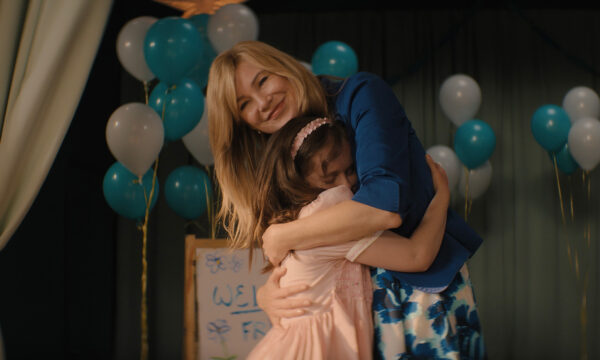
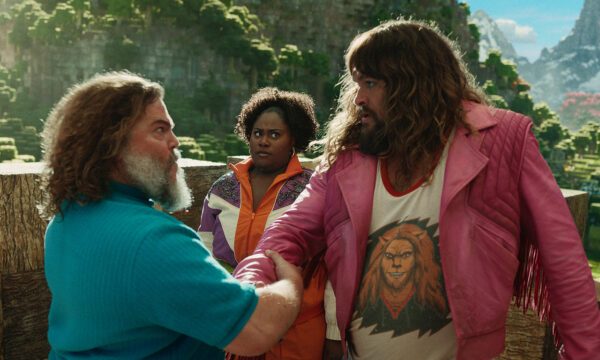
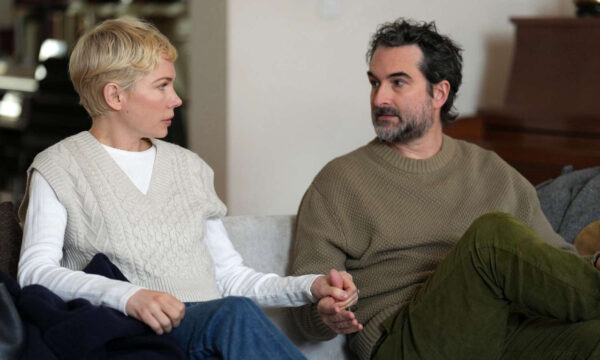
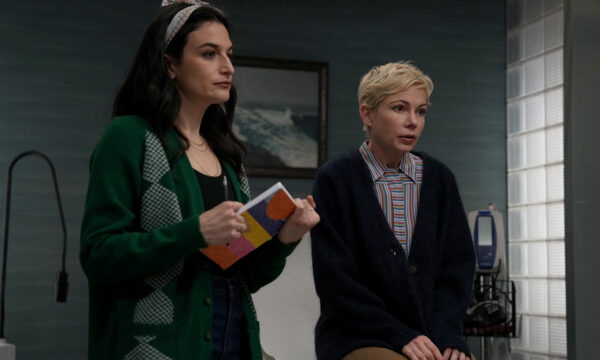


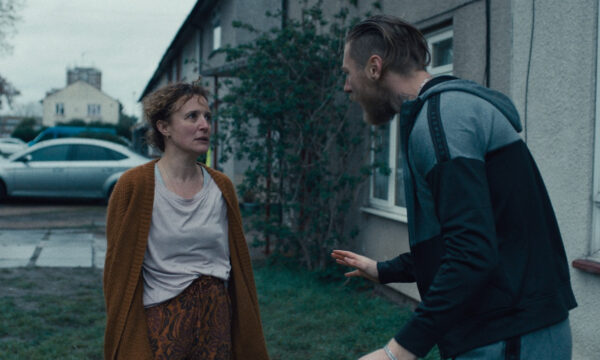











Facebook
Twitter
Instagram
YouTube
RSS